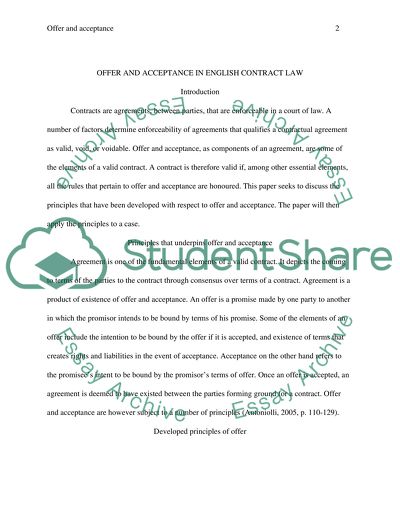Cite this document
(“Offer and acceptance in english contract law Essay”, n.d.)
Retrieved from https://studentshare.org/law/1445379-offer-and-acceptance-in-english-contract-law
Retrieved from https://studentshare.org/law/1445379-offer-and-acceptance-in-english-contract-law
(Offer and Acceptance in English Contract Law Essay)
https://studentshare.org/law/1445379-offer-and-acceptance-in-english-contract-law.
https://studentshare.org/law/1445379-offer-and-acceptance-in-english-contract-law.
“Offer and Acceptance in English Contract Law Essay”, n.d. https://studentshare.org/law/1445379-offer-and-acceptance-in-english-contract-law.


